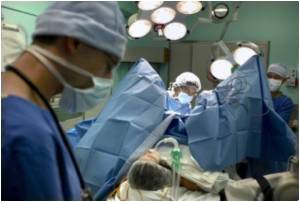
There has been no definitive medical treatment and drugs usually help the symptoms just to relieve.
Local anesthetics are used to locally desensitise the tissues to allow surgical interventions.
However, their mechanism of action is based on their potential to inhibit neuronal activity in the area.
Since it is proposed that IBD may be a result of imbalance in the autonomic neurons of the colon, local anesthetics have the potential to reduce the inflammation at the site of the colon that are affected by IBD.
In a recent experimental study, investigators from Uludag University School of Medicine, Bursa, Turkey investigated the possible therapeutic effects of local anaesthetics on IBD.
Advertisement
The researchers used some scoring systems that evaluated the inflammation at the site of drug application.
Advertisement
They found some improvement in the degree of macroscopic inflammation at the areas where local anaesthetics were applied; however, those findings were not supported by microscopic findings.
Nevertheless, researchers concluded that local anaesthetics might have potential therapeutic effects on IBD based on their findings.
The study has appeared in the World Journal of Gastroenterology.
Source-ANI










